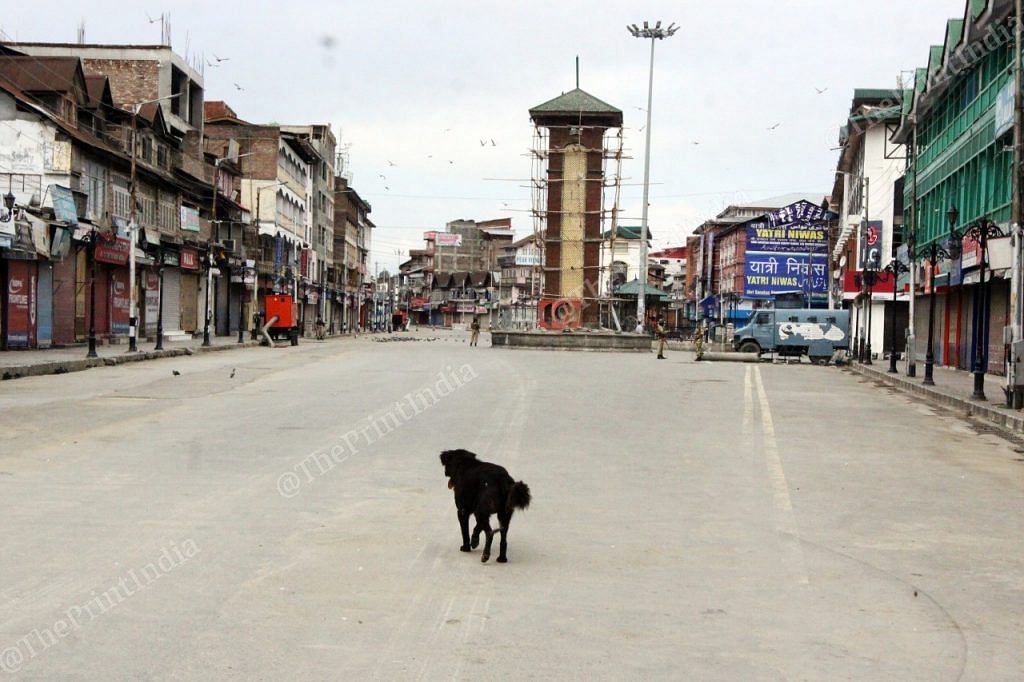New Delhi: The administrative and governance structure of Jammu and Kashmir is set to undergo a major overhaul after the state is bifurcated on 31 October.
The Narendra Modi government had on 5 August revoked the state’s special status under Article 370, but it proposed that the state would be bifurcated into union territories of Jammu-Kashmir and Ladakh, with and without an assembly, respectively, from the night of 31 October.
Once the state is dismembered, its governor will assume the role of a lieutenant-governor (L-G), who will preside over matters of security, police and postings of government officials.
“For the time being, the chief secretary of the state will report directly to the L-G for all governance-related matters,” said a senior government official on condition of anonymity. “Once the assembly comes in, the chief secretary will report to both the chief minister as well as the L-G.”
Matters of policing and security will come directly under the jurisdiction of the union home ministry headed by Amit Shah, while development matters will be handled by the chief minister through his Council of Ministers.
“Earlier, the CM through his cabinet could transfer officers. Now, only the L-G will be able to do it,” the officer said. “It would be a Delhi-like distribution of power.”
According to the Jammu and Kashmir Reorganisation Act, all the bills passed by the J&K assembly will have to be approved by the L-G, who will also have the right to withhold consent to any bill. The central government will also have the power to declare a financial emergency under Article 360 in J&K.
Also read: Beyond Article 370, we must ask if the J&K bifurcation was constitutional
What about Ladakh?
Ladakh will also have a chief secretary, who will be called ‘Advisor’. The chief secretary, who will be a principal secretary-rank officer, will report directly to the L-G.
Additionally, the L-G will be assisted by two secretary-level officers, who will, in turn, have ‘Heads of Departments’ followed by district-level officers working under them.
“Overall, the administration of Ladakh will be much simpler…It will be governed and administered by the Government of India through the L-G, and its administrative ministry will be the union territory division of MHA,” the officer quoted above said.
But, there is no uniform template as far as the powers of the L-G in union territories are concerned, said K. Mahesh, an IAS officer, who has served as the special home secretary in the Delhi government.
“In Delhi, for example, the L-G is very powerful, (but) in Puducherry, they are comparatively less powerful…So it really depends on how the powers of the Kashmir L-G have been carved out,” he said.
“In Delhi, for example, the L-G has exclusive powers over law and order, policing and land…In Puducherry, the CM has powers over these areas, but if there is a difference of opinion between the CM and the L-G, the L-G can refer the matter to the Centre, and the Centre’s views prevail.”
Meanwhile, the Jammu-Kashmir cadre of IAS, IPS officers is yet to be divided between J&K and Ladakh. The local administration and police officers of the Kashmir Administrative Service and the Kashmir Police Service, too, will have to be distributed between the two UTs.
“In effect, policing in Kashmir has been with the Centre since the 1980s,” said Wajahat Habibullah, a retired IAS officer, who has served in various districts of Jammu and Kashmir throughout his career.
“Through the CRPF, BSF and Army, the Centre has controlled policing for at least three decades in the state…The state police have had a peripheral role,” he added. “So in that sense, there would not be much difference.”
Also read: Anticipation & confusion among J&K’s IAS, IPS officers as they await AGMUT cadre merger
